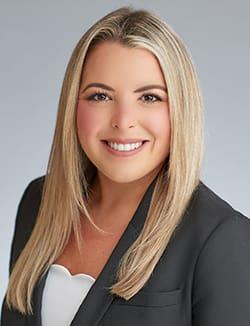The Corporate Transparency Act (CTA) obligates millions of companies and other entities, both foreign and domestic, to report beneficial ownership information. While much has been made of the impact to businesses due to the new requirements, it’s important to note that thousands of companies will be exempt. Is yours one of the lucky ones? Meagan Jones and Perry Sofferman of Baker Donelson break down the CTA’s exemptions.
The CTA specifically sets forth 23 exemptions to its definition of “reporting company,” which are specified in the final rule implementing the reporting requirements and further described in FinCEN’s small entity compliance guide. Any entity that qualifies under any of the following 23 exemptions will not be subject to the BOI report filing requirement:
- Securities reporting issuer: Any issuer of securities that is: (A) an issuer of a class of securities registered under Section 12 of the Securities Exchange Act of 1934; or (B) required to file supplementary and periodic information under Section 15(d) of the Securities Exchange Act of 1934.
- Governmental authority: Any entity that: (A) is established under the laws of the United States, an Indian tribe, a state or a political subdivision of a state or under an interstate compact between two or more states; and (B) exercises governmental authority on behalf of the United States or any such Indian tribe, state or political subdivision.
- Bank: Any entity that is a “bank” as defined in: (A) Section 3 of the Federal Deposit Insurance Act; (B) Section 2(a) of the Investment Company Act of 1940; or (C) Section 202(a) of the Investment Advisers Act of 1940.
- Credit union: Any entity that is a “federal credit union,” or “state credit union,” as those terms are defined in Section 101 of the Federal Credit Union Act.
- Depository institution holding company: Any “bank holding company” as defined in section 2 of the Bank Holding Company Act of 1956, or any “savings and loan holding company” as defined in Section 10(a) of the Home Owners Loan Act.
- Money services business: Any money transmitting business registered with FinCEN under 31 U.S.C. 5330, or any money services business registered with FinCEN under 31 CFR 1022.380.
- Broker or dealer in securities: Any entity that is a “broker” or “dealer,” as those terms are defined in Section 3 of the Securities Exchange Act of 1934, and that is registered under section 15 of such act.
- Securities exchange or clearing agency: Any entity that is an “exchange” or “clearing agency,” as those terms are defined in Section 3 of the Securities Exchange Act of 1934, and that is registered under sections 6 or 17A of such act.
- Other Exchange Act-registered entity: Any entity other than that described in Exemption 1 (securities reporting issuer), Exemption 7 (broker or dealer in securities) or exemption 8 (securities exchange or clearing agency) that is registered with the SEC under the Securities Exchange Act of 1934.
- Investment company or investment adviser: Any entity that is: (A) an “investment company” as defined in Section 3 of the Investment Company Act of 1940, or an “investment adviser” as defined in Section 202 of the Investment Advisers Act of 1940; and (B) registered with the SEC under either: (1) the Investment Company Act of 1940; or (2) the Investment Advisers Act of 1940.
- Venture capital fund adviser: Any investment adviser that: (A) is described in Section 203(l) of the Investment Advisers Act of 1940; and (B) has filed Item 10, Schedule A and Schedule B of Part 1A of Form ADV, or any successor thereto, with the SEC.
- Insurance company: Any entity that is an “insurance company” as defined in Section 2 of the Investment Company Act of 1940.
- State-licensed insurance producer: Any entity that: (A) is an insurance producer that is authorized by a state and subject to supervision by the insurance commissioner or a similar official or agency of a state; and (B) has an operating presence at a physical office within the United States. See attached for more details on what constitutes an operating presence under the CTA.
- Commodity Exchange Act registered entity: Any entity that: (A) is a “registered entity” as defined in Section 1a of the Commodity Exchange Act; or (B) is: (1) either a “Futures commission merchant,” “Introducing broker,” “Swap dealer,” “Major swap participant,” “Commodity pool operator” or “Commodity trading advisor,” each as defined in Section 1a of the Commodity Exchange Act; or a “Retail foreign exchange dealer” as described in Section 2(c)(2)(B) of the Commodity Exchange Act; and (2) registered with the Commodity Futures Trading Commission under the Commodity Exchange Act.
- Accounting firm: Any public accounting firm registered in accordance with Section 102 of the Sarbanes-Oxley Act of 2002.
- Public utility: Any entity that is a “regulated public utility” as defined in 26 USC 7701(a)(33)(A), and provides telecommunications services, electrical power, natural gas or water and sewer services within the United States.
- Financial market utility: Any financial market utility designated by the Financial Stability Oversight Council under Section 804 of the Payment, Clearing and Settlement Supervision Act of 2010.
- Pooled investment vehicle: Any “pooled investment vehicle” as defined in the CTA that is operated or advised by a person described in Exemptions 3 (bank), 4 (credit union), 7 (broker or dealer in securities), 10 (investment company or investment adviser) or 11 (venture capital fund adviser).
Corporate Transparency Act: What Is It, and How Will It Affect Small Companies?
The 2021 Corporate Transparency Act included new reporting requirements that represent the most significant change in the formation of corporations in decades, and while it’s clear that the White House intends to use FinCEN regulations as part of its anti-financial crime pursuits, it may not be clear what that means for small companies.
Read moreWe will discuss the remaining five exemptions in greater detail as we expect those exemptions to be of utmost interest to all private, non-regulated business entities.
Tax-exempt entity: Any entity that is: (A) an organization that is described in Section 501(c) of the Internal Revenue Code of 1986 (determined without regard to Section 508(a) of the code) and exempt from tax under Section 501(a) of the code; (B) an organization that is described in Section 501(c) of the code and was exempt from tax under Section 501(a), but lost its tax-exempt status less 180 days ago; (C) a political organization, as defined in Section 527(e)(1) of the code, that is exempt from tax under Section 527(a) of the code; or (D) a trust described in paragraph (1) or (2) of Section 4947(a) of the code.
When looking to qualify for an exemption involving tax-exempt status, entities should be aware of potential CTA reporting obligations during the period after formation of the new tax-exempt entity but before such entity receives confirmation of its tax-exempt status from the Internal Revenue Service. During this gray period, unless the entity falls under another CTA exemption, the entity will be required to file a BOI report with FinCEN. Additionally, if the tax-exempt entity loses its status and the 180-day period mentioned above has passed or such entity otherwise becomes subject to the reporting requirements, such entity will need to report, among other items, information about its beneficial owners, which in the case of certain tax-exempt entities may seem confusing. For instance, a nonprofit corporation’s “beneficial owners” could include senior officers, individuals with the ability to appoint or remove a senior officer or a majority of the board of directors and individuals who direct or otherwise have substantial influence over important organization decisions, even though these individuals do not technically “own” any interest in the organization itself.
Please note, not all tax-exempt organizations fall under this. For example, a religious organization that is tax-exempt under Section 501(d) of the code will not qualify for this exemption, however, a private foundation may, depending on the circumstances.
Entity assisting a tax-exempt entity: Any entity that: (A) operates exclusively to provide financial assistance to, or hold governance rights over, any entity described in Exemption 19 above; (B) is a U.S. person as defined in Section 7701(a)(30) of the Internal Revenue Code of 1986; (C) is beneficially owned or controlled exclusively by one or more U.S. persons that are U.S. citizens or “lawfully admitted for permanent residence” (as defined in Section 101(a) of the Immigration and Nationality Act); and (D) derives at least a majority of its funding or revenue from one or more United States persons that are United States citizens or “lawfully admitted for permanent residence.”
Given the broadness of subsection (A) above, more guidance is needed to determine which entities actually fall within this exemption.
Large operating company: Any entity that: (A) employs more than 20 full-time employees in the United States, with “full-time employee” having the meaning provided in 26 CFR 54.4980H-1(a) and 54.4980H-3 and “United States” having the meaning provided in 31 CFR 1010.100(hhh); (B) has an operating presence at a physical office — can be owned or leased — within the United States; and (C) filed a federal income tax or information return in the United States for the previous year demonstrating more than $5 million in gross receipts or sales, as reported as gross receipts or sales (net of returns and allowances) on the entity’s applicable IRS form, excluding gross receipts or sales from sources outside the United States, as determined under federal income tax principles.
Under this exemption, a “full-time employee” is anyone employed by the company that averages at least 30 hours per week or 130 hours per month. Leased employees do not count in the 20-person employee requirement, and entities may not consolidate employees across affiliated entities for purposes of the CTA. The final rules and regulations did not address how to account for seasonal employees or changes in the number of employees during any year, so that concept is still left unclear. Additionally, unlike the employee requirement where the entity is not allowed to consolidate for purposes of satisfying such requirement, an entity that is part of an affiliated group of corporations within the meaning of 26 USC 1504 that files a consolidated tax return is permitted to aggregate the entirety of the affiliated group’s gross receipts or sales requirement for purposes of meeting such requirement. However, unless and until such an entity has a tax return meeting the gross receipts and sales requirement, it will not be able to take advantage of the “large operating company” exemption. Further, it should be noted that having a P.O. box or other principal address where no business is conducted will not be sufficient to establish a physical operating presence.
Like the other CTA exemptions, should the entity no longer meet any of the requirements mentioned above, it will no longer qualify for the “large operating company” exemption and instead will be required to file a BOI report within 30 days from the date the entity lost such exemption.
Subsidiary of certain exempt entities: Any entity whose ownership interests are controlled or wholly owned, directly or indirectly by one or more exempt entities as described in Exemptions 1-5, 7- 17, 19 or 21 set forth above.
It should be noted that this exemption applies to only some, and not all, of the above exemptions. For instance, such subsidiaries will not qualify for the “subsidiary exemption” if the parent entity or parent entities are themselves only exempt under the CTA for: (i) pooled investment vehicles; (ii) money transmitting or money services businesses; (iii) entities assisting tax-exempt entities; or (iv) inactive entities. Additionally, should the status of an exempt owner change, such an entity may become subject to, and have a duty to file, a BOI report.
While the “wholly owned” concept mentioned above will likely be straightforward to apply, the “control” concept for this exemption may require a more detailed analysis. For example, the analysis of whether an entity qualifies for this “subsidiary exemption” does not conclude upon identifying a single exempt entity that controls or owns the entity’s ownership interests. Instead, if an entity were to be controlled by more than one entity, one of which is not exempt, this “subsidiary exemption” may not be available.
Inactive entity: Any entity that: (A) was in existence on or before Jan. 1, 2020; (B) is not engaged in active business; (C) is not owned by a “foreign person,” whether directly or indirectly, wholly or partially; (D) has not experienced any change in ownership in the preceding 12-month period; (E) has not sent or received any funds in an amount greater than $1,000, either directly or through any financial account in which the entity or any affiliate of the entity had an interest, in the preceding 12-month period; and (F) does not otherwise hold any kind or type of assets, whether in the United States or abroad, including any ownership interest in any corporation, limited liability company, or other similar entity.
Please note that this exemption does not apply to inactive entities formed after Jan. 1, 2020, and has other important limitations.




 Meagan O. Jones
Meagan O. Jones Perry F. Sofferman
Perry F. Sofferman






